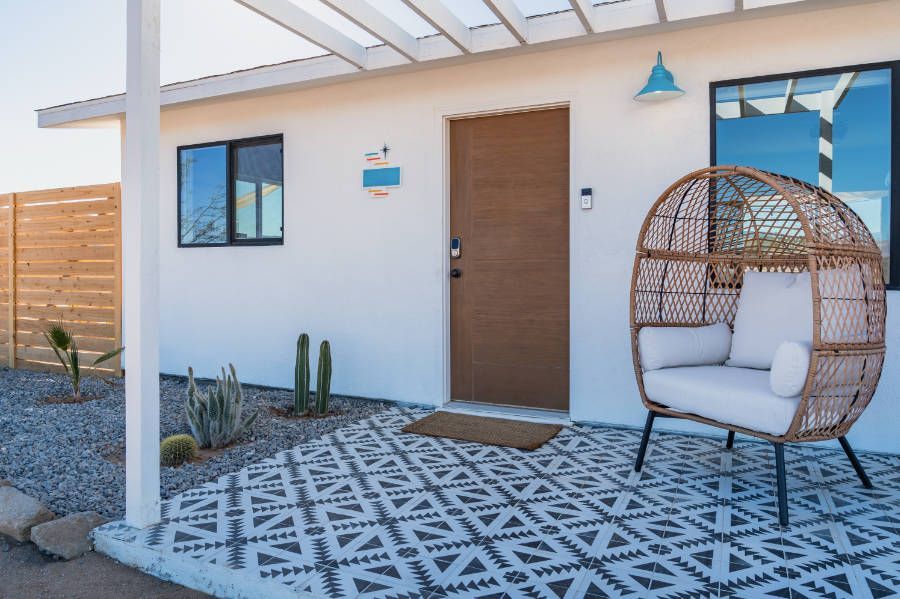10 Questions to Ask about Property Management Services
Dustin Edwards • April 16, 2021
Key Questions Can Help You to Find the Right Company

One of the most challenging aspects about calling a potential property management company
is thinking about the questions you could ask them. The most obvious question that should be asked is “what is your management fee?”; however, that only tells part of the story. As many property management companies can quote the property management fee that might initially seem competitive or a great value you could be presented with unexpected fees down the road. To help you avoid surprises and to help you find the best possible property management company for your goals we invite you to consider the following 10 questions.
Question 1: What are the average days on market a unit in my neighborhood remains available prior to placing a tenant?
Items to Consider: Each day that your property is vacant is a day you aren’t earning income. When you ask this question make sure they are comparing your specific asset type (i.e. single family home, condo, duplex, etc.) and your neighborhood as there can be large variances the days a property remains available for rent.
Question 2 : What repairs do you recommend after each tenant?
Items to Consider: A healthy property is one that can get tenants staying for long periods of time. If a property management company says something like “we usually paint it and clean the carpets” they might not be paying attention to the smaller details that can cause challenges. Do they evaluate items such as ceiling fans or even test electrical sockets to see if they are working? The level of depth of the answer can give you an idea of how they could care for your property.
Question 3: How long have you worked in my local market?
Items to Consider: The Long Beach rental market is one that can change in any given neighborhood. After all Park Estates is different from Los Altos and Bixby Knolls is different than either...which means finding a property management company that has rentals in your given neighborhood is key and preferably they have been there awhile as that helps them to accurately price your rental.
Question 4: Do you have any special programs? (i.e. Guaranteed Rent program) What are the conditions?
Items to Consider: In today’s era of new services there are companies who offer special “guaranteed rents”. Make sure to understand the fine print and other costs as some of these services/companies can charge ½ month’s rent just to market your property for the next tenant where they “guarantee” the rent! In a competitive market where properties might only be available for a day or two this high investment could outweigh the guarantee.
Question 5: How many calls each month, on average, do you receive from tenants with my type of property?
Items to Consider: While each tenant and property are different, getting an understanding of how many calls they handle per property can give you an idea of how they care for properties and the level of service you could expect. After all if it is a single property manager company and they handle 200 properties and they get 2 calls per property per month they might not be able to answer your call in the manner you would expect.
Question 6: Will you perform a rental analysis on my property? How often do you revisit this analysis?
Items to Consider: A rental analysis will evaluate your property much like you were preparing it for sale, but this is one for a rental. While there are free services to evaluate the market rent in Long Beach
and nearby cities you will want to understand the depth of analysis the company will take as they can take into consideration unique upgrades, location variances, etc. to help you get top dollar.
Question 7: Can you share with me invoice examples?
Items to Consider: This is one that many people get nervous about asking; however, remember it is your money! Don’t wait for the first invoice to be a surprise, get a few different invoice examples to help you see what fees you could expect. If they won’t provide examples, that is a point of concern. Consider asking for the following invoices:
- One where the tenant is in their second month of living
- One after repairs were made
- One when the property was being listed for rent
Question 8: Do you share with me a log of repair items that have been done to my property monthly? Annually?
Items to Consider: While it is the role of the property management company to get the repairs handled without bothering you it is important for you to get an idea of the health of your property.
Question 9: If I want to sell my rental property, do you have real estate brokerage services? Is there a discount if I am a property management customer?
Items to Consider: Even with the best of rentals in Long Beach there is a chance you still might want to sell it. Ask if the property management company lists properties for sale and/or if they will coordinate with an agent of your choosing if they don’t. Especially if the property is being sold as a rental you will want someone who can provide rent rolls and maintenance history to the next buyer.
Question 10: How do you keep up on the local ordinances and laws?
Items to Consider: Local ordinances, especially during turbulent times, can change rapidly. Find out what process your prospective management company has to stay abreast of changes to help keep your property safe from a legal challenge.
Finding the right property management services from the right company can be a challenge. If you’d like to ask us these 10 questions to see if we are the best fit for your Long Beach rental call us today at (562) 888-0247 as we’d be happy to help answer each one. When you want a quick check to see how much your property could fetch in rent we invite you to fill out our Free Rental Analysis where we perform a comprehensive comparison to share your rental stacks up to the competition.





